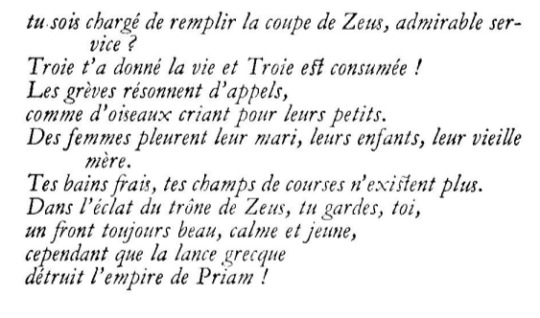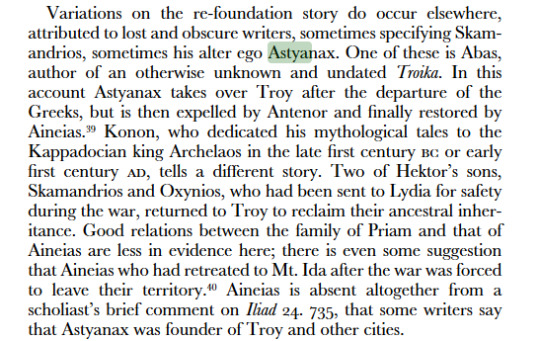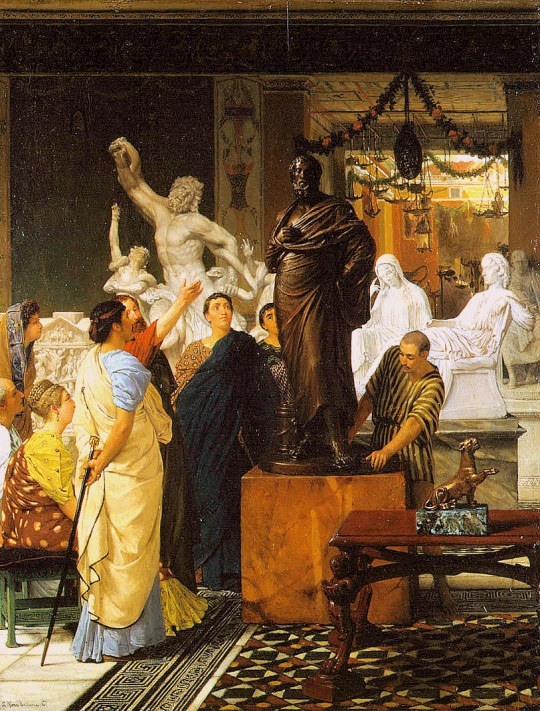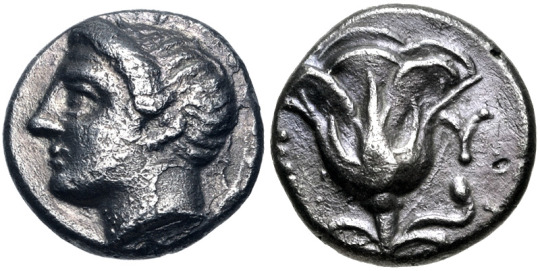#troades
Text
9am seneca hitting me with that there is nothing after death
#oh well. post mortem nihil est ipsaque mors nihil. seneca amo te.......#shut up ulrike#seneca the younger#tagamemnon#troades#set for class this week so im flicking back and forth between the latin and the facing translation...
13 notes
·
View notes
Text

Troades, Euripides (trans. Marie Delcourt)
1 note
·
View note
Text
~tragedies end with catharsis~
I am only full of fury, left with nowhere to go
BITING KILLING TEARING full of hate
#greek myth thoughts#shoves each and every Achaean speaking character#in Euripides and Seneca's Troades INTO A FUCKING WELL
16 notes
·
View notes
Text
Mamica excitata sare in pula ca nebuna
Hot latin girl showing and hot at bar
cum tribute in the big tits of annamromano
Best milf anal squirting
Step Mom is Stuck in her New Chair - Leads to Anal - Melanie Hicks
Indian Mujra dance
Vietnamese Teen Couple
Marilu amiga caliente cogida en hotel de tlalpan
Asian hottie with gentle hands gives lucky boy a wet hot rub
Shannon Stewart Wet and Wild Live
#morphinism#conrey#pimples#Pero#north-easter#hydroxytryptamine#deepfake#shinwood#Hrault#epichindrotic#bitterbur#shpt.#octroi#Brookhouse#prelateity#Farrel#tritiums#tarpaulin#Troad#nailsick
1 note
·
View note
Text
All I have to say for now is, I dont think afo is defeated yet. Chapter ends in a cliffhanger and the way he was "defeated" was absolutely ridicolous. Hori I get that you are a bakugou fanboy but can you PLEASE stop forcing down everyones troad what a gary stu he is? "He covered his explosive sweat with normal sweat". Like WHAT??? 🤣🤣🤣 and somehow it ends up in afos mouth??? (Ewww). And all the vestiges fanboying/girling over hawks? What kind of manga am I reading again? 🤣🤣🤣
Only good part about this chapter is, that at least it got confirmed that bakugou was some ugly ass baby. Cant believe we get his birth before the main characters.... oh my bad I forgot HE is the main character now. Afterall he is the one allowed to "defeat" the main villain while the fight between the supposed main character of the story and the secondary main villain happend completly offscreen! Great writing! 👍🏻😆
90 notes
·
View notes
Note
Also for the bookshelf - your favourite (or a favourite) classical tragedy and where its copies are. from the answers to this ask I’m envying your well-stocked bookshelf…
This is a cunning attempt to get me to choose a favorite tragedy! But I'll bite.
I have seven copies of the Troades and six copies of the Ion. Troades: two in Greek (one is a Loeb, the other is the Barlow), then the English translations I have are Hamilton, Vellacott, Lattimore (twice) and Murray. Ion: one in Greek (Owen), then for English translations I have H.D., Vellacott, Willetts (twice) and Potter. They are shelved with the rest of my Euripides.
My book collection is a great joy in my life and a large part of the fun of doing this is getting to glory in that! But I hope it's not too envy-inducing or too much of a show-off. I think the particularities of my living situations from early adulthood through now have made it rather easier for me to accumulate and maintain a substantial book collection (I wasn't ever moving long distances, or moving in and out dorm rooms), for which I am grateful.
7 notes
·
View notes
Text
There is a quality pertaining to water in motion which suggests life. The myths of
ancient Greece show how responsive the people of those days were to the vitality and numinous character of their rivers, or in other words to the mysterious presence of a god which a river would emanate. Both major and lesser poets keep referring to them and bringing them into the landscapes of their most stirring imagery. What is there more suggestive of the numinous life of a river than the picture we are given of the Skamander in the Iliad, where the Troad scenery has become part of Greece.
Every spring even, whether gushing or trickling, was mysteriously live, for there was always a nymph presiding or embodying it,not a god but a female deity. As sons of Okeanos and Tethys, rivers were nearly always gods; springs were always female creatures. Their religio loci was feminine in contrast to the virile life of rivers.
-River Gods of Greece by Harry Brewster
100 notes
·
View notes
Text
they said girls with brown hair couldn’t write two separate essays on necrophilia for end of semester final assessments
#one for each of the units i havent submitted for yet#one on it as control in dracula and a marcus clarke short story and one on death as coupling in seneca's troades and phaedra#shut up ulrike#uniposting#ulrikecore
11 notes
·
View notes
Text
TROAD Teasers of new characters











#lord x fnf#lord x#apollyon#sonic exe#teaser#fnf teaser#mod teaser#lord mortis#sandi334#mistful crimson morning#red mist#starved eggman#starved squidward#faker sonic
14 notes
·
View notes
Text
Roman sources 1 : Roman myths
I was asked by @subjects-of-the-king if I knew of some actual ancient Roman sources about the Roman gods in their specificity. Note that I am NOT an expert on Roman religion, and that I mostly rely on books written by experts and people that studied the Roman religion and culture - but I do know of a few “direct” sources, and I will split them down briefly in two.
The first part here being entirely focused around myths. All the texts below are about Roman authors writing the myths and legends of their mythology - and... if you are interested in the pre-Hellenized Roman gods, it won’t be of any real big use, because as I said, almost all of Roman mythology is just a copy-paste or remake of the Greek one. BUT these texts are without a doubt much needed to understand how the Romans received the Greek legends and how they re-adapted them to their own religion and culture (plus if you want to compare the Greek and Roman versions of the legend, you’ll need them)
The same way the Greeks myth have two huge literary monuments at their base (Homer and Hesiod’s works), the Roman mythology relies on two big authors that made a bridge between Roman and Greek culture by importing the Greek legends into the Roman world, or creating the first literary Roman legends. These authors are Ovid and Virgil.
Ovid is of course most famed for his “Metamorphoses”, (Transformations), a collection of tales of transformation from the Greek legends, re-adapted for the Roman religion (plus with some purely unique Roman legends). “Metamorphoses” is especially famous due to the reverse-influence it had on the reception of the Greek myths - as I said before, Ovid invented a LOT of rapes of “Classical mythology”, and turned a lot of consensual or un-ambiguous Greek mythological relationships into rapes and sexual abuses. Ovid however wrote many other works that are of relevance to the Roman mythology - two I can quote of the top of my head at “Fasti” (The Festivals) which details the Roman calendar, its various festivals and celebrations and the legends tied to them (so we do have here some additional info about Roman religion itself), and the Heroides (Heroines), which is basically a set of invented letters presenting mythological heroines in a confessional mode.
The other big behemoth of Roman mythology is without a doubt Virgil, thanks to his most famous work: Aeneid. THE Roman epic poem, conceived as a direct sequel to Homer’s “Iliad”, and inventing a cultural/legendary/historical link tying the Greek mythology to the Roman one, with the founding hero of the Roman civilization, Aeneas. Just like with Ovid, while the Aeneid is his most famous works, Virgil wrote many other pieces very informative about the Roman gods - such as the Georgics, which is... a poem about agriculture basically. But when you remember that originally the pre-Hellenized Roman gods were agricultural and nature gods, centered around a farmer-religion, it makes sense a poem about agricultural chores turns out to contain a lot of info about myths, legends, rites and gods.
Beyond those two main guys, there are several other authors that made their mark and influence over Roman myths.
# Statius, who wrote two Roman epics; the Thebaid and the Achilleid (two Roman rewrites of Greek myths, respectively the fight of Eteocles and Polynices for the throne of Thebes, and the life of Achilles). Another big Roman epic we know about (but unfinished) is the Argonautica, by Valerius Flaccus - which as the title says is a Roman retelling of the myth of Jason and the Argonauts.
# Seneca, who was one of the most famous play-writers of Ancient Rome, and left us numerous famous Roman theater plays presenting Roman versions of Greek myths: Medea, Phaedra, Thyestes, Troades, a Roman Oedipus, etc...
# Another BIG author when it comes to Roman myths is without a doubt Hyginus, who produced two works entirely about collecting myths. The first is “Fabulae”, which is one of the biggest myth compilations ever produced by a Roman authors, around three hundred different stories compiled together - though, due to the huge number of stories, Hyginus sacrificed the poetic complexity of Ovid and Virgil, and so he often tells the myths in very short, simplified forms so he could cram as much as he could. His second work is basically the same thing - but this time with a theme, “De Astronomica”, a compilation of myths entirely centered around astronomy and the constellations.
# Not a Roman author, but a Greek one tackling the Roman stories: I will briefly mention here Plutach’s famous “Parallel Lives”, of their full title “Lives of the Noble Greeks and Romans”. As the name says, Plutarch decided to present biographies of famous, noble and legendary Greek and Roman figures, placed together in parallels - and I include the text here because it covers the mythical first rulers of Rome, such as Romulus and Numa Pompilius.
# I will finish this first list with a very... unusual work. Apuleius “The Golden Ass”, also known as The Metamorphoses of Apuleius. It is a late Roman novel (written somewhere on the second century) and... it is a very strange, unusual weird story. It is an humoristic, bawdy, almost erotic story of a man ending up turned into a donkey by mistake and following the adventures of various people, but it also sometimes turns into grotesque and nightmarish horror (mostly thanks to the constant involvment of terrifying witches), and it ends up as a mystical quest under the Roman cult of the goddess Isis (it shows here the “late” part of the “late Roman era”, since Apuleius’ text depicts a Roman religion stuffed with “foreign gods”). And it contains numerous very influential tales of Greco-Roman legends - most notably, it is in this story that you will find THE most famous and complete version of the myth of Psyche and Cupid, so famous that during European Renaissance it was THIS version of the myth that was known, and no other.
(A second part of this post will arrive one of these days, centered about texts talking of religion and rites, rather than myths)
#roman mythology#roman myths#roman gods#roman texts#literary sources#ovid#virgil#roman epics#the golden ass
8 notes
·
View notes
Text


Troades, Euripides (trans. Marie Delcourt)
#troades#the trojan women#les troyennes#euripides#literature#the trojan women lashing out at ganymede like
1 note
·
View note
Text
A (not exhaustive) inventory of Astyanax's death and survival.
In the Little Iliad, Neoptolemos is the killer.
In the Iliou Persis, Odysseus is the killer.
In the Trojan Women we don't actually know who does the deed, "merely" that Odysseus is singled out as the (major) voice who argued for his death. As Andrew Erskine in Troy Between Greece and Rome points out (referencing another academic as well), given the lack of detail in what's left to us, Odysseus might well have been involved in Astyanax's death in the Little Iliad as well, in the same role he has in here in the Trojan Women.
Seneca (Troades) follows Euripides in the public deliberation and has Odysseus being present for Astyanax's death, but he has Astyanax leap voluntarily. (Excuse me, WTF.)
Quintus of Smyrna, in his Posthomerica, has the killing be done by "the Greeks". Not just the deliberation like in the Trojan Women, but "they" seized him and tossed him from the wall. Whether intended or not, it makes it read a little like a mob scene. (edited to add this, because I'd forgotten to check.)
Tryphiodoros, in the Taking of Ilios, has it again be Odysseus.
So what we get is that even when Odysseus isn't actively the hand that commits the deed, he's the (first? major? leading?) voice in claiming it "needs" to be done. For the ~safety of Greece~, of course.
So, now we come to myths and stories of Astyanax's survival. It's mostly here the "not exhaustive" disclaimer applies. For a lot of the Medieval sources (where this idea flourishes) I can't double check if they say anything about who/how Astyanax survives.
With that said; the Medieval manuscripts aren't the earliest ideas of Astyanax's survival!
One is late Classical or earlier; Dionysios of Halikarnassos reports of the Ilians (that is, the Anatolian Greeks of the "modern" Ilion/Troy, built somewhere after ~1000 BC) had a founding legend that involved Astyanax and Askanios.
Given that Astyanax can approach his cousin after being released by Neoptolemos, presumably Neoptolemos didn't kill Astyanax but rather take him along into slavery with his mother and Helenos.
I'll just include this screencap from Troy Between Greece and Rome for the next bit since it's easier:

On to the Medieval sources; the absolute earliest appearances of Astyanax here is as the founder of the Franks, now named Francion/Francus. French Wikipedia has a note to an author that says that Astyanax's survival was effected by (unnamed in the text and note) Medieval authors by the Greeks softening up and ending up not killing Asyanax because of his beauty.
Next is the "Andromache swaps Astyanax for another child and the Greeks (more like Odysseus) is tricked and kills the substitute". It has several appearances/uses, but the earliest (at least by the list in Wikipedia) seems to be Boiardo's Orlando Innamorato (1495).
While being unable to, like, check if anyone is named as the rescuer in some of these (Wiki also has an unsourced mention of Talthybios), in general we seem to land on either Neoptolemos or, in later stories, Andromache herself. I wouldn't think Neoptolemos ends up not killing Astyanax out of the goodness of his heart, more as a way to control Andromache, but there it is either way.
Odysseus is only ever an obstacle to be worked around, which isn't odd given how often he is either the killer, or, maybe far more important, the voice to argue that Astyanax need to die. Not so odd he'd then be construed in later stories as the character to be specifically tricked by the child-swap.
I'll put the sources under the cut!
(For the Little Iliad)
Scholiast on Lycophr. Alex., 1268:
"Then the bright son of bold Achilles led the wife of Hector to the hollow ships; but her son he snatched from the bosom of his rich-haired nurse and seized him by the foot and cast him from a tower. So when he had fallen bloody death and hard fate seized on Astyanax. And Neoptolemus chose out Andromache, Hector's well-girded wife, and the chiefs of all the Achaeans gave her to him to hold requiting him with a welcome prize. And he put Aeneas, the famous son of horse-taming Anchises, on board his sea-faring ships, a prize surpassing those of all the Danaans."
(For the Sack of Ilion/Ilioupersis)
The Greeks, after burning the city, sacrifice Polyxena at the tomb of Achilles: Odysseus murders Astyanax; Neoptolemus takes Andromache as his prize, and the remaining spoils are divided.
(Note 136 to Apllodorus' Library, trans. Frazer)
Compare Arctinus, Ilii Persis, summarized by Proclus, in Epicorum Graecorum Fragmenta, ed. G. Kinkel, p. 50; Eur. Tro. 719-739, Eur. Tro. 1133-1135; Eur. And. 8-11; Paus. 10.26.9; Quintus Smyrnaeus, Posthomerica xiii.251-257; Tryphiodorus, Excidium Ilii 644-646; Tzetzes, Scholiast on Lycophron 1263; Scholiast on Eur. Andr. 10; Ov. Met. 13.415-417; Hyginus, Fab. 109; Seneca, Troades 524ff., 1063ff. While ancient writers generally agree that Astyanax was killed by being thrown from a tower at or after the sack of Troy, they differ as to the agent of his death. Arctinus, as reported by Proclus, says merely that he was killed by Ulysses. Tryphiodorus reports that he was hurled by Ulysses from a high tower. On the other hand, Lesches in the Little Iliad said that it was Neoptolemus who snatched Astyanax from his mother's lap and cast him down from the battlements (Tzetzes and Paus. 10.26.9). According to Euripides and Seneca, the murder of the child was not perpetrated in hot blood during the sack of Troy but was deliberately executed after the capture of the city in pursuance of a decree passed by the Greeks in a regular assembly. This seems to have been the version followed by Apollodorus, who apparently regarded the death of Astyanax as a sacrifice, like the slaughter of Polyxena on the grave of Achilles. But the killing of Astyanax was not thus viewed by our other ancient authorities, unless we except Seneca, who describes how Astyanax leaped voluntarily from the wall while Ulysses was reciting the words of the soothsayer Calchas and invoking the cruel gods to attend the rite.
(Trojan Women, Euripides)
Talthybius
You that once were the wife of Hector, bravest of the Phrygians, [710] do not hate me, for I am not a willing messenger. The Danaids and sons of Pelops both command—
Andromache
What is it? your prelude bodes evil news.
[…]
Talthybius
They mean to slay your son; there is my hateful message to you.
Andromache
[720] Oh me! this is worse tidings than my forced marriage.
Talthybius
So spoke Odysseus to the assembled Hellenes, and his word prevails.
Andromache
Oh, once again alas! there is no measure in the woes I bear.
Talthybius
He said they should not rear so brave a father's son.
(Dionysios of Halikarnassos; Ant. Rom. 1. 47. 5–6)
Aineias . . . sent Askanios, the eldest of his sons, with some of the allies, mainly Phrygians, to the land called Daskylitis, where the Askanian lake is, since his son had been invited by the inhabitants to rule over them. Askanios did not dwell there for long. When Skamandrios and the other descendants of Hektor approached him after Neoptolemos had released them from Greece, he went to Troy and restored them to their ancestral kingdom.
49 notes
·
View notes
Text
i wanna blog about totally spies more. i LOVE that show. it's a pity that, at least in my opinion, the later series villains weren't as...formiddable? they weren't as deadly as before, they were goofy. and don't get me wrong, there were plenty of goofy totally spies villains, but the older ones could kill you. like helga von googen? that crazy bitch was turning people into animals for the sake of SKINNING THEM FOR HER FUR LINE. then made clothes that choke the life out of you. also troad definitely died in that episode.
also, i was thinking on who my favourite villains were, and it's definitely jazz hands, second to sebastian and his sick electric guitar theme tune. third being the iconic tim scam. but number 1 has to be jazz hands. his voice actor is. so. FUNNY. and i have such a newfound appreciation for clover, i never disliked her but she is so much funnier than i remember.
#totally spies#here we go#on a mission undercover and we're#in control!#jerry#sam#clover#jazz hands#alex#david is so unintentionally funny#tim scam
9 notes
·
View notes
Photo

Sherd / Turkey-Troad -Troy/ Ceramic
Penn Museum
9 notes
·
View notes
Photo



A Sculpture Gallery in Rome at the Time of Agrippa by Lawrence Alma-Tadema + Memnon of Rhodes by Dalton Thomas Rix + Coinage of Memnon of Rhodes, Mysia. Mid 4th century BC
Memnon's career in Persian service had a strange start. In fact, the Persians needed his brother Mentor to defend the Troad (the northwest of modern Turkey), and gave him land in that region. Not much later, Mentor was made Persian supreme commander in the West and married Barsine, the daughter of the satrap of Hellespontine Phrygia, Artabazus, who married a sister of the Rhodians.
Memnon joined his brother and shared in his adventures. For example, when Artabazus rebelled against king Artaxerxes III Ochus in 353 or 352, they assisted him. The revolt was not successful, and Artabazus and Memnon were forced to flee to Pella, the capital of Macedonia. Here, they met king Philip, the young crown prince and the philosopher Aristotle of Stagira.
...
The Persians dug themselves in on the banks of the river Granicus, the modern Biga Çay. If Alexander moved to the south, where he wanted to liberate Greek towns like Ephesus and Miletus, they could attack his rear; if he moved to the east to drive them out, their position was strong enough to withstand the attack of a larger army. However, the Persians were defeated (June 334).
Darius, however, understood that Memnon had been right about his strategy. He ordered the Persian navy to move to the Aegean sea; it had to come from Egypt, Phoenicia, and Cyprus, and it arrived three days too late to prevent the capture of Miletus. However, Memnon, now appointed supreme commander, managed to keep the Persian naval base Halicarnassus (modern Bodrum) for a long time and was able to evacuate the town without unacceptable losses. In fact, Halicarnassus was the last Persian victory: after the siege, Alexander needed reinforcements, and it gave the Persians the opportunity to regroup.
—Memnon of Rhodes at Livius.org
Memnon, one of King Darius’s generals against Alexander, when a mercenary soldier excessively and impudently reviled Alexander, struck him with his spear, adding, I pay you to fight against Alexander, not to reproach him.
—Plutarch, Morals vol. 1
#Memnon of Rhodes#Dalton Thomas Rix#Lawrence Alma-Tadema#King Philip II of Macedon#Darius III#Aristotle#Laocoön#Alexander the Great#Plato
2 notes
·
View notes